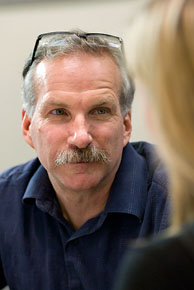 Four decades ago, the ideas put forth by Alfred Crosby and William McNeill in The Columbian Exchange and Plagues and Peoples forever changed the importance historians put on the role of cultural and biological exchange between the old and new world. The idea that the transfer of diseases from one population to another played as important a role in empire-building as our human conquests became embedded in our cultural narrative.
Four decades ago, the ideas put forth by Alfred Crosby and William McNeill in The Columbian Exchange and Plagues and Peoples forever changed the importance historians put on the role of cultural and biological exchange between the old and new world. The idea that the transfer of diseases from one population to another played as important a role in empire-building as our human conquests became embedded in our cultural narrative.
This Thursday, March 26, at 4 pm in the Konover Auditorium, Dodd Research Center, Gregg Mitman’s lecture examines how American military and industrial expansion overseas helped bring into being new views of nature and nation that would, in turn, become the scientific foundation upon which later historical narratives of ecological imperialism relied. This event is free and open to the public.
Gregg Mitman is the Vilas Research and William Coleman Professor of History of Science, Medical History, and Environmental Studies at the University of Wisconsin-Madison. His teaching and research interests span the history of science, medicine, and the environment in the United States and the world, and reflect a commitment to environmental and social justice.
The Edwin Way Teale Lecture Series brings leading scholars and scientists to the University of Connecticut to present public lectures on nature and the environment. The series is named for the Pulitzer Prize-winning author and naturalist Edwin Way Teale, whose papers reside in UConn’s Archives and Special Collections.
Co-sponsored by University of Connecticut Libraries, Human Rights Institute, Center for Conservation and Diversity, Graduate School, and several University departments including Ecology and Evolutionary Biology, Economics, and Political Science.
